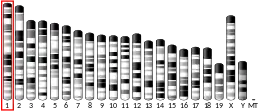| LY9 | |||||||||||||||||||||||||||||||||||||||||||||||||||
|---|---|---|---|---|---|---|---|---|---|---|---|---|---|---|---|---|---|---|---|---|---|---|---|---|---|---|---|---|---|---|---|---|---|---|---|---|---|---|---|---|---|---|---|---|---|---|---|---|---|---|---|
| Identifiers | |||||||||||||||||||||||||||||||||||||||||||||||||||
| Aliases | LY9, CD229, SLAMF3, hly9, mlymphocyte antigen 9 | ||||||||||||||||||||||||||||||||||||||||||||||||||
| External IDs | OMIM: 600684 MGI: 96885 HomoloGene: 1759 GeneCards: LY9 | ||||||||||||||||||||||||||||||||||||||||||||||||||
| |||||||||||||||||||||||||||||||||||||||||||||||||||
| |||||||||||||||||||||||||||||||||||||||||||||||||||
| |||||||||||||||||||||||||||||||||||||||||||||||||||
| |||||||||||||||||||||||||||||||||||||||||||||||||||
| |||||||||||||||||||||||||||||||||||||||||||||||||||
| Wikidata | |||||||||||||||||||||||||||||||||||||||||||||||||||
| |||||||||||||||||||||||||||||||||||||||||||||||||||
T-lymphocyte surface antigen Ly-9 is a protein that in humans is encoded by the LY9 gene.[5][6][7] LY9 has also recently been designated CD229 (cluster of differentiation 229).
Interactions
References
- 1 2 3 GRCh38: Ensembl release 89: ENSG00000122224 - Ensembl, May 2017
- 1 2 3 GRCm38: Ensembl release 89: ENSMUSG00000004707 - Ensembl, May 2017
- ↑ "Human PubMed Reference:". National Center for Biotechnology Information, U.S. National Library of Medicine.
- ↑ "Mouse PubMed Reference:". National Center for Biotechnology Information, U.S. National Library of Medicine.
- ↑ Sandrin MS, Henning MM, Lo MF, Baker E, Sutherland GR, McKenzie IF (Feb 1996). "Isolation and characterization of cDNA clones for Humly9: the human homologue of mouse Ly9". Immunogenetics. 43 (1–2): 13–9. doi:10.1007/bf00186599. PMID 8537117. S2CID 10045488.
- ↑ Kingsmore SF, Souryal CA, Watson ML, Patel DD, Seldin MF (Aug 1995). "Physical and genetic linkage of the genes encoding Ly-9 and CD48 on mouse and human chromosomes 1". Immunogenetics. 42 (1): 59–62. doi:10.1007/BF00164988. PMID 7797269. S2CID 28529549.
- ↑ "Entrez Gene: LY9 lymphocyte antigen 9".
- ↑ Sayós J, Martín M, Chen A, Simarro M, Howie D, Morra M, Engel P, Terhorst C (Jun 2001). "Cell surface receptors Ly-9 and CD84 recruit the X-linked lymphoproliferative disease gene product SAP". Blood. 97 (12): 3867–3874. doi:10.1182/blood.V97.12.3867. PMID 11389028.
- ↑ Morra M, Simarro-Grande M, Martin M, Chen AS, Lanyi A, Silander O, Calpe S, Davis J, Pawson T, Eck MJ, Sumegi J, Engel P, Li SC, Terhorst C (Sep 2001). "Characterization of SH2D1A missense mutations identified in X-linked lymphoproliferative disease patients" (PDF). J. Biol. Chem. 276 (39): 36809–36816. doi:10.1074/jbc.M101305200. PMID 11477068. S2CID 39889619.
Further reading
- Andersson B, Wentland MA, Ricafrente JY, Liu W, Gibbs RA (1996). "A "double adaptor" method for improved shotgun library construction". Anal. Biochem. 236 (1): 107–113. doi:10.1006/abio.1996.0138. PMID 8619474.
- Yu W, Andersson B, Worley KC, Muzny DM, Ding Y, Liu W, Ricafrente JY, Wentland MA, Lennon G, Gibbs RA (1997). "Large-scale concatenation cDNA sequencing". Genome Res. 7 (4): 353–8. doi:10.1101/gr.7.4.353. PMC 139146. PMID 9110174.
- Tovar V, de la Fuente MA, Pizcueta P, Bosch J, Engel P (2000). "Gene structure of the mouse leukocyte cell surface molecule Ly9". Immunogenetics. 51 (10): 788–793. doi:10.1007/s002510000209. PMID 10970093. S2CID 23932012.
- de la Fuente MA, Tovar V, Villamor N, Zapater N, Pizcueta P, Campo E, Bosch J, Engel P (2001). "Molecular characterization and expression of a novel human leukocyte cell-surface marker homologous to mouse Ly-9". Blood. 97 (11): 3513–3520. doi:10.1182/blood.V97.11.3513. PMID 11369645.
- Sayós J, Martín M, Chen A, Simarro M, Howie D, Morra M, Engel P, Terhorst C (2001). "Cell surface receptors Ly-9 and CD84 recruit the X-linked lymphoproliferative disease gene product SAP". Blood. 97 (12): 3867–3874. doi:10.1182/blood.V97.12.3867. PMID 11389028.
- Morra M, Simarro-Grande M, Martin M, Chen AS, Lanyi A, Silander O, Calpe S, Davis J, Pawson T, Eck MJ, Sumegi J, Engel P, Li SC, Terhorst C (2001). "Characterization of SH2D1A missense mutations identified in X-linked lymphoproliferative disease patients". J. Biol. Chem. 276 (39): 36809–36816. doi:10.1074/jbc.M101305200. hdl:2437/230556. PMID 11477068.
- Morra M, Lu J, Poy F, Martin M, Sayos J, Calpe S, Gullo C, Howie D, Rietdijk S, Thompson A, Coyle AJ, Denny C, Yaffe MB, Engel P, Eck MJ, Terhorst C (2001). "Structural basis for the interaction of the free SH2 domain EAT-2 with SLAM receptors in hematopoietic cells". EMBO J. 20 (21): 5840–5852. doi:10.1093/emboj/20.21.5840. PMC 125701. PMID 11689425.
- Tovar V, del Valle J, Zapater N, Martin M, Romero X, Pizcueta P, Bosch J, Terhorst C, Engel P (2002). "Mouse novel Ly9: a new member of the expanding CD150 (SLAM) family of leukocyte cell-surface receptors". Immunogenetics. 54 (6): 394–402. doi:10.1007/s00251-002-0483-3. PMID 12242590. S2CID 38277782.
- Del Valle JM, Engel P, Martín M (2003). "The cell surface expression of SAP-binding receptor CD229 is regulated via its interaction with clathrin-associated adaptor complex 2 (AP-2)". J. Biol. Chem. 278 (19): 17430–17437. doi:10.1074/jbc.M301569200. PMID 12621057.
- Martín M, Del Valle JM, Saborit I, Engel P (2005). "Identification of Grb2 as a novel binding partner of the signaling lymphocytic activation molecule-associated protein binding receptor CD229". J. Immunol. 174 (10): 5977–86. doi:10.4049/jimmunol.174.10.5977. PMID 15879090.
- Romero X, Zapater N, Calvo M, Kalko SG, de la Fuente MA, Tovar V, Ockeloen C, Pizcueta P, Engel P (2005). "CD229 (Ly9) lymphocyte cell surface receptor interacts homophilically through its N-terminal domain and relocalizes to the immunological synapse". J. Immunol. 174 (11): 7033–42. doi:10.4049/jimmunol.174.11.7033. PMID 15905546.
External links
- LY9+protein,+human at the U.S. National Library of Medicine Medical Subject Headings (MeSH)
This article incorporates text from the United States National Library of Medicine, which is in the public domain.
This article is issued from Wikipedia. The text is licensed under Creative Commons - Attribution - Sharealike. Additional terms may apply for the media files.





